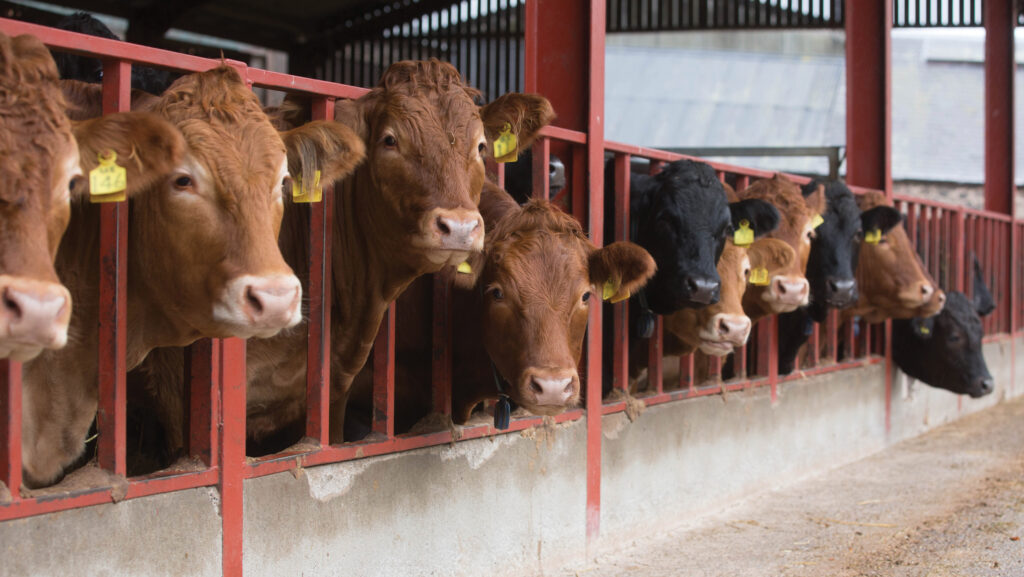UK beef retains strong price premium due to limited supplies
 © Tim Scrivener
© Tim Scrivener Finished cattle continue to trade at unprecedented levels with steers trading at a 155p/kg premium compared with the same period last year.
Deadweight prices have eased back slightly since peaking in May, but now appear to be stabilising at around 635p/kg, with several meat processors either lifting or holding base prices for beef in the past week.
Tight supplies across the UK and Ireland are still the major driving force behind this support, with buyers keen to secure supplies of both prime cattle and older cows.
See also: Trade at livestock markets hit by bluetongue policy changes
UK beef production was 13,100 tonnes (3.4%) lower during the first five months of the year.
The AHDB has forecast prime cattle slaughter to total 2m head during 2025, down by 4% on the year.
Strong demand for mince and fewer cows coming forward have also been supporting the cow price.
Becky Smith, senior livestock analyst at the AHDB, said: “Like the prime market, we have seen record highs in cow prices in recent months, following a period of rapid growth in the first half of 2025.
“Supply tightness has underpinned this growth in prices, with cow kill for the year to date down 5% on the year previous.”
Weekly cattle throughputs in Ireland have been 2,800 head lower compared with the same week in 2024 and are expected to remain low for the rest of the year, according to Declan Hanrahan, livestock chairman at the Irish Farmers’ Association.
He added: “Beef prices have steadied and started to rise as supplies tighten, and demand remains strong from our key markets.”
Imports
Tight supplies have shifted the focus on to imports with some retailers looking further afield to South America for beef, much to the disapproval of both the NFU and Ulster Farmers’ Union (UFU).
UFU deputy president Glenn Cuddy said: “There’s always a concern around imported food and whether or not the production standards are the same as what’s expected in the UK.
“When supermarkets consistently support local produce, it gives a significant lift to the entire industry.”
Australian beef import volumes to the UK have also increased so far in 2025, driven by an expanded quota under the trade deal.
High beef prices leave stock underinsured
Lincolnshire-based insurance firm Dallas Scott Davey has warned farmers to ensure their livestock is still adequately insured, following the sharp increase in prices during the spring.
Toby Baker, an insurance specialist at the firm, noted that typical store cattle insured for £1,600 last year may now be worth £2,400, while well finished fat cattle were achieving £3,000 at some markets.
He said: “Livestock prices have increased over the past 12 months, with significant rises recorded across all classes of cattle – from dairy herds and suckler cows to store cattle, prime fat stock and calves.
“However, insurance policies are often left unchanged, failing to reflect the true current market value of these animals.”
Mr Baker added that as cattle prices continued to strengthen, an increasing number of farmers no longer had adequate insurance cover for their livestock, which could mean any claims would only cover a proportion of the value of the animals and may lead to a financial loss.
“While it’s tempting to keep premiums low, the risk of being underinsured could far outweigh any short-term savings.”
